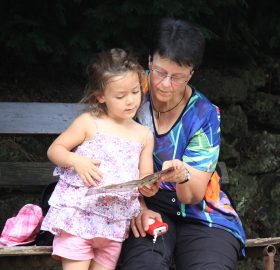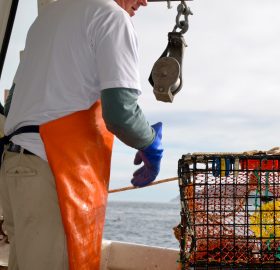Reuniting Families Across Canada
The Family Class Sponsorship Program aids in reuniting families by enabling adult permanent residents or citizens to sponsor a relative for immigration to Canada. The Canadian government offers a number of ways to allow Canadian citizens and permanent residents to bring their loved ones from abroad to Canada under its Family Class Sponsorship.
The available sponsorship programs include:
- Spouse or common-law sponsorship
- Dependent children sponsorship
- Parent or Grandparent sponsorship
- Relative sponsorship
Your relatives can live, study and work in Canada if they become permanent residents of Canada. You can sponsor certain relatives to come to Canada if you’re at least 18 years old and a:
- Canadian citizen or
- person registered in Canada as an Indian under the Canadian Indian Act or
- permanent resident of Canada
By undertaking to support sponsored members of the family class, the sponsor promises that, for a specified duration, they will provide for the basic needs of their family members so they do not have to rely on social assistance.
Sponsorship applications involving spouses, common-law or conjugal partners, and dependent children are given priority.
Sponsorship applications involving adopted children, children to be adopted and orphans are also given priority, as they often involve minors without parental care. See more Adoptions (PDF, 474 KB).
There are no processing priorities for other members of the family class.
Contact us to learn more about the requirements of each sponsorship program and begin your application process.
What’s New to the Alberta Opportunity Stream?
The Alberta Opportunity Stream (AOS) is a pathway to permanent residence in Canada for migrants working in Alberta and international graduates who have completed their studies at an approved Alberta post-secondary institution.
Changes in the Last Year
Effective November 1, 2018:
- The income threshold requirement was removed. This means if you applied to AOS prior to November 1, 2018, the income threshold criteria will not be applied to your application.
- Changes have been made to the planned increases to language requirements.
Effective November 30, 2018, the Alberta Opportunity Stream List of Alberta Advanced Education Approved Post-Secondary Credentials will apply to Alberta international students enrolled on or after April 1, 2019
Effective April 1, 2019
- Canadian Language Benchmark (CLB) or Niveaux de competence linguistique canadiens (NCLC) 4
- Minimum High School in Country of Origin
- Change in eligible Alberta post-secondary certificates/diplomas. If admitted and enrolled in Alberta program on or after April 1, 2019, must have a post-graduate-certificate or diploma on the Alberta Opportunity Stream List of Alberta Advanced Education Approved Post-Secondary Credentials. No change to other eligible credentials (degrees and graduate-level certificates/diplomas)
Eligible post-graduate certificate holders must show occupation/work experience is related to their prior post-secondary field of study outside Canada.
Anticipated Changes
There are planned increased to the selection criteria for language and education between 2018 and 2021. Here is a list of what is expected to change and when it is expected to change:
- If you are admitted and enrolled in your Alberta credential program on or after April 1, 2019, your credential must be on the Alberta Opportunity Stream List of Alberta Advanced Education Approved Post-Secondary Credentials.
As of January 1, 2020
- If you are working in a NOC 0, A or B occupation, you must meet a minimum of CLB 5 for each English or French language skill at the time of application.
- If you are working in a NOC C or D occupation, there are no planned changes to language requirements. The minimum of CLB 4 for each English or French language skill at the time of application will continue to apply.
- CLB/NCLC 5 for candidates working in NOC 0, A or B occupation. No change for NOC C or D occupations.
- Minimum High School in Country of Origin.
- Change in eligible Alberta post-secondary certificates/diplomas. If admitted and enrolled in Alberta program on or after April 1, 2019, must have a post-graduate-certificate or diploma on the Alberta Opportunity Stream List of Alberta Advanced Education Approved Post-Secondary Credentials. No change to other eligible credentials (degrees and graduate-level certificates/diplomas).
- Eligible post-graduate certificate holders must show occupation/work experience is related to their prior post-secondary field of study outside Canada.
Starting January 1, 2021, all candidates except Post-Graduation Work Permit holders must have completed a minimum of high school equivalent to Alberta standards.
To discuss if the Alberta Opportunity Stream is the right program for you, set-up an initial consultation with one of our knowledgeable RCICs by emailing info@activeprofessionals.com.
Everything You Need to Know About the Atlantic Pilot Program
The Atlantic Immigration Pilot Program (AIPP) was developed for employers in the Atlantic provinces – Nova Scotia, New Brunswick, Newfoundland & Labrador, Prince Edward Island – to hire foreign skilled workers and recent international graduates who want to live and work in the Maritimes.
This program is designed for the sole use of Employers who are designated under the program to be able to recruit and hire workers with the skills, education and work experience to contribute to the local economy.
There are three programs in the pilot that employers can hire you through. Although you may qualify for more than one program, you can only apply through one.
The three programs are:
- Atlantic International Graduate Program
- Atlantic High-Skilled Program
- Atlantic Intermediate-Skilled Program
All three programs require you to show proof that you meet the language, education and work experience requirements and that you have enough money to support you and your family when you come to Canada.
Atlantic International Graduate Program
If you’ve lived and studied in one of the Atlantic provinces, you may be eligible to apply under the Atlantic International Graduate Program.
Are You Eligible?
To qualify, you must have lived in an Atlantic province for at least 16 months in the two years before getting your degree, diploma or credential, meet the education requirements, take a language test to show you can communicate in English or French and show that you have enough money to support yourself and your family in Canada.
Education Requirements
The education requirement state you must have at least a 2-year degree, diploma, certificate, or trade or apprenticeship credential from a recognized publicly-funded institution in an Atlantic province. And have been a full-time student for the entire duration of your studies. You also need to have graduated from this institution in the 24 months before your permanent resident application is received and had the visa or permit you needed to work, study or train in Canada.
Atlantic High-Skilled Program
This program is aimed at skilled workers with management, professional or technical/skilled job experience. If you have a job offer from a designated employer in Atlantic Canada for a full-time position of at least 30 hours per week, you may qualify for this program.
Program Eligibility Requirements
Work
You must have worked for at least one year within the last three years. It can be full-time, non-continuous, or part-time, as long as it adds up to 1,560 hours. The work must be in one occupation (but can be with different employers), paid, and at skill type/level 0, A, or B of the National Occupational Classification (NOC). Your experience can be gained inside or outside of Canada.
Education
You must have one of the following:
- a Canadian secondary (high school) or post-secondary certificate, diploma or degree
- a foreign degree, diploma or certificate, equal to a Canadian credential. You’ll need an Educational Credential Assessment (ECA) report from a recognized organization to show your credential is valid and equal to a Canadian credential.
Language
You must take one of the language tests approved. The test shows you can communicate in English or French well enough to live and work in Canada.
Proof of Funds
You need to have enough money to support yourself and your family when you get to Canada. If you’re already living and working in Canada with a valid work permit, you don’t need to show proof of funds.
Atlantic Intermediate-Skilled Program
This program is aimed at candidates for jobs requiring a high school education and/or job-specific training. You will need to have a job offer from a designated employer in Atlantic Canada for a full-time position of at least 30 hours per week to qualify for this program.
Additional Eligibility Requirements
- You must have a job full-time offer that is from an AIP-designated employer in an Atlantic province that is a skill type/level 0, A, B or C and is permanent. The offer must be made using the correct federal government form.
- You must have worked for at least one year within the last three years. It can be full-time, non-continuous, or part-time, as long as it adds up to 1,560 hours.
- You must have a Canadian secondary (high school) or post-secondary certificate, diploma or degree, or a foreign degree, diploma, certificate, or trade or apprenticeship education credential. You will need an Educational Credential Assessment (ECA) to make sure your foreign degree is valid and equal to a Canadian credential.
- You must core at least a level 4 in the Canadian Language Benchmark exam in English or the Niveaux de Compétence Linguistique Canadiens in French.
Other Ways to Immigrate to Atlantic Canada
- Nova Scotia Provincial Nominee Program
- New Brunswick Provincial Nominee Program
- Newfoundland & Labrador Provincial Nominee Program
- Prince Edward Island Provincial Nominee Program
Not sure if this is the program for you? Complete our Consultation Questionnaire so we can help you determine the best fit for your situation.
What Could Provincial Nomination Mean for You?
Provincial nomination offers a valuable route to Canadian permanent residence. Each of Canada’s provinces and territories, with the exception of Quebec and Nunavut, operates its own immigration program, called a Provincial Nominee Program (PNP). As the provinces have different populations and economies, their immigration programs are unique and built to fit their economic and demographic needs.
Each PNP has at least one stream for nomination, with many provinces and territories offering multiple streams. These streams are designed by the provinces to help meet their unique immigration goals, so the eligibility criteria and application procedures vary.
Applicants for PNPs are workers who have the skills, education and work experience to contribute to the economy of a specific province or territory, want to live in that province, and want to become permanent residents of Canada. Each stream will target different qualifications and may look to students, business people, or skilled workers.
How you will apply depends on which Provincial Nominee Program stream you’re applying to. You might need to apply using the paper-based process, or by the online process through Express Entry. As part of the process, you will have to pass a medical exam and get a police check (certificate). Everyone must have these checks, no matter where they plan to live in Canada. With more than 80 provincial immigration streams, discovering the Canadian immigration pathway that best suits you may be challenging. The team at Active Immigration Professionals can help. Contact us today to determine which stream is best suited to your individual circumstance and take the next step in your Canadian Journey.
What is Credit and Why Do I Need It?
Credit is a delayed payment plan between a borrower and a lender that enables access to funds for repayment at a later date. Common types of credit include installment loans for large purchases, as well as revolving credit arrangements including credit cards and lines of credit.
Access to credit reduces the burden of paying cash for high-cost items, such as a house or car, allowing you to spread the expense out over time. Credit is what makes purchasing major items like homes and cars possible for most Canadians.
Most lenders use credit scores to determine how much credit you can have. Insurance companies use your credit rating as a factor in determining what sort of rate to offer you on homeowner’s insurance, auto insurance, and life insurance.
So, how does a credit score work exactly? The more reliable you are at obtaining credit and paying the bills faithfully, the higher your rating will be. The higher your credit rating is, the lower you are as a perceived risk. People with high credit scores are statistically more likely to be safe drivers, safe homeowners, and likely to live longer.
Now that you want to create a killer credit score for yourself, how do you go about it? One of the easiest and most common ways to build your credit is by applying for a secure credit card. Use your credit card for small purchases monthly. Then, pay the credit card off completely every month. One of the most important steps in building a high credit score is to never miss a payment and always make at least the minimum payment.
What Do I Need to Bring to Canada as an International Student?
Being and international student in a new country, such a Canada, can be challenging and really exciting at the same time. There are a number of things you should be prepared for before you make your big move. Here are some tips for you on what to prepare before you travel.
Make sure you have all your essential documents in place such as:
- A valid passport.
- A valid Canadian Temporary Resident Visa (if applicable).
- A letter of introduction issued by the Canadian Visa Office that approved your Study Permit application. Submit this letter to a Canadian Immigration Officer when you arrive at the border to obtain your actual Study Permit.
- The original Letter of Acceptance from your Canadian University.
- Proof of funds available for your stay in Canada (money transfer, letter of credit, scholarship letter, or other proof).
- Marriage Certificate and/or proof of common-law status (if applicable).
- Any other documents recommended by the Canadian Visa Office where you applied for your Study Permit.
Make sure that you carry all these documents with you. Don’t put these important documents in your checked luggage, and be prepared to show them to any Canadian immigration officer at the border.
Other Documents you will likely want to bring include:
- A list of any items that you are sending separately or which you do not clear through customs when you arrive. Have the list stamped by immigration, if possible.
- Medical and immunization (vaccination) records, translated if possible.
- Medical insurance policy (if applicable).
- Driver’s license or International Driver’s license, and driving insurance records if you plan to drive in Canada.
- A list of important phone numbers.
Personal items to bring with you:
- Medications you may need for the first few months.
- Medical prescriptions.
- Credit card.
- Relevant documents from your previous school (e.g. transcripts, awards, or any other certificates).
- A mobile phone that can be used in Canada. It reduces the cost of your phone plan if you bring your own device.
- Clothing for the different seasons (when you reach Canada you can buy more appropriate clothes for winter).
- Anything memorable such as family pictures, native food, etc. to help you feel more comfortable as you settle in.
By coming prepared you can enjoy this new and exciting experience without worry.
Welcome to Canada! We hope you enjoy your new home.
What You Need to Know About the Skilled Worker Program
The Federal Skilled Worker (FSW) program is a part of the Express Entry process. This program is an immigration option for people who are selected to come to Canada because of their work experience and skills.
Skilled workers are chosen as permanent residents based on their education, work experience, knowledge of English and/or French, and other factors. These things often help them succeed in Canada.
This program has minimum requirements for skilled work experience, language ability, and education. You must meet all the minimum requirements to be eligible.
Work Experience Requirements
To immigrate to Canada under the Skilled Worker program, your work experience must be either Skill Type 0, Skill Level A or Skill Level B on the Canadian National Occupational Classification (NOC).
Your work experience must be paid, full-time (30 hours per week) or the equivalent hours part-time. You must have had that work experience during the last 10 years.
These limits do not apply if you have a permanent job offer.
Proof of Funds
You must show that you have enough money for you and your family to settle in Canada unless you are currently able to legally work in Canada or have a valid job offer from an employer in Canada.
How much money you’ll need to support your family depends on the size of your family. To calculate the size of your family you must include
- yourself
- your spouse or partner
- your dependent children
- your spouse’s dependent children
If you believe you are interested in the Federal Skilled Worker program, contact us today!
Five Tips to Thrive in Your First Canadian Winter
Your first Canadian winter can be a shock, with the fluctuating temperatures, cold winds, and falling snow. Canada gets cold and dry in the winter months; not -5°C cold, but -30°C cold. So, how do you prepare for that and ensure you make the most of the season?
Go in prepared with these five tips for thriving in the Canadian winters.
Warm Outerwear
Not all cold-weather gear is created equal. Whether you will be trekking through the backcountry, or taking on snow-covered city streets, winter can be brutal. That is why your winter coat, whatever the style, whatever the purpose, has to keep you warm. Look for a jacket that is water-resistant at a minimum, ideally waterproof, and rated for temperatures as low as -20°C. Longer cuts help to keep your backside warm when you are moving about and can keep the crisp winds from making their way in.
You will also want to find yourself a pair of waterproof, fleece-lined winter gloves, a fleece-lined toque and a thick scarf to help keep the cold off of your skin.
Proper Footwear
Although snow can be beautiful to look at, it can also be wet, slippery and icy. It is very common for people to slip on ice while walking, especially without appropriate footwear, so make sure you invest in a good pair of boots. You should look for insulated, waterproof boots with higher tops and a sole that has enough tread to prevent slips and falls.
Stay Hydrated
Drinking plenty of water not only helps you stay hydrated, it also helps regulate body temperature and is essential to the function of cells, tissues and organs. Drinking warm liquids such as tea, cider, hot chocolate or coffee will help to keep you warm on chilly days. Drinking water and teas can also give your immune system a boost to keep those unwanted illnesses at bay.
Vitamin D Supplementation
In Canada, limited sun exposure means your body can’t produce vitamin D from November through April. For newcomers transitioning from a warmer, sunny climate, this is a major transition for your body to handle. Vitamin D regulates or influences over 200 genes in your body, playing an important role in overall health. Keep your body happy and the “bugs” away by supplementing with Vitamin D3 this winter season.
Moisturize
The cold winds of the Canadian winter sap your skin of its natural moisture which can cause your skin to dry and crack, or your lips to become chapped. In some cases, it can be painful but is easily avoidable with lip chap and skin creams.
Winter Tires
If you plan to drive, it’s very important to be aware of the weather conditions and have your car prepared for them. In the thick of winter, Canadian roads can be icy and flurries can lead to poor visibility. Winter tires can help to give you better traction on the roads during this weather while slowing down and being aware of your surroundings can help you reach your destination safely.
These are a few tips to get you started off on the right foot, but you can continue to make this an amazing winter by further educating yourself on the things to be aware of with the cold weather and getting outside to enjoy the beauty and fun of the colder season.
10 Tips to Help You Get Settled in Canada
There is an excitement and nervousness that you feel when you first arrive in your new Country. You have arrived in Canada, and now you have so many questions. Where do you begin when it comes to getting settled?
Here are 10 tips which can get you headed in the right direction:
- Find your first home in Canada. Whether you decide to rent or purchase, having your first home will be a major accomplishment in your Canadian journey. Check out these top considerations when looking for a place to call your own.
- Shop for appropriate clothing. If you came from a tropical country, you will need proper winter clothing that will stand-up in colder temperatures. Items such as a winter jacket, winter pants, and winter boots – pick ones that are water proof and have good grip. You will also need gloves, scarves, warm socks and toques. Keep yourself warm and dry during the winter months.
- Open a Canadian bank account. Anyone can open a bank account in Canada if they meet the identification requirements set out in the Bank Act. A bank account lets you write cheques, use automated banking machines (ABMs), get paid through direct deposit, and use a debit or credit card for purchases. You can open an account even if you don’t have a job yet or money to deposit, or if you’ve been bankrupt.
- Apply for your Social Insurance Number (SIN) and Healthcare Card. This very important, and you should do it in your first week if possible. Learn how to apply for your SIN card and healthcare card.
- Find a Family Physician. Family doctors treat a wide range of conditions, and are often your primary care providers. In the long term, that means you will want to build a lasting relationship with a family physician. Developing such a relationship allows them to know your medical history inside and out, helping them make accurate diagnoses, watch for red flags regarding medications and monitor changes in your health through the years.
- Find a specialist or consultant for Newcomer’s to Canada. Building a relationship with an immigration specialist will provide you with a resource who can provide information and direction throughout your Canadian journey. They will give you advice, provide information and resources, as well as suggest next steps.
- Strengthen your English with free courses. If you’re a permanent resident or a protected person, you can take language classes at no cost to you. English is a confusing language with lots of words and phrases that are more common in speech than writing, and are typically restricted to a particular context. Practice will strengthen your English abilities and help you get better at identifying appropriate context. Learn more about these classes.
- Get educational equivalency. Being new to Canada it’s really hard to get your dream job right away. Submiting your Educational transcript for equivalency may be a stepping stone to get you there faster. After you receive your equivalency, take it to any college or university and show your IQAS result. The educational institute will decide what additional courses you need based on this information. The advantage of sending your educational documents to IQAS is you may not have to upgrade any additional English or Math, allowing you to start taking other courses right away.
- Make new friends or contacts. Join local sports groups, find a volunteer job, reach out to your new neighbours, or attends short courses. Meeting new people will help you get settled in your new life and can prove beneficial in a variety of areas from personal to professional.
- Find a job. Looking for a job in Canada is like a diving into a “deep blue sea”. Remember you are in a new country and accepting any job will help you overcome challenges that may come up during your settlement period. Stay motivated to reach your goals and you will be successful.
These stepping stones can give a starting point for settled in Canada and help you along the path to living your Canadian dream.
Dress to Impress and Ace That Interview
You receive an email that you have a job interview, but you don’t know what to wear? These tips will help you go in looking professional and polished.
Stay away from Scents
Many companies have scents free policies; this is because some people have allergies or reactions to certain odours.
Dress in comfortable, professional clothing
There is a common saying “dress for the job that you want, not the job you have”. This means if you are interviewing for an office position, you should dress in business wear, while if you are applying for a labour position, then clean casual clothing may be appropriate. It is important that you look presentable and comfortable because this way you can present yourself properly and are likely to be more successful.
Get ready the night before your interview
- Try on everything that you want to wear one day before your interview. This will keep you from scrambling the day of the interview to find items that fit nicely and will ensure you have the perfect outfit ready to go.
- Polish your shoes.
- Get a haircut.
- Once you have picked out your outfit, press your clothes for a crisp, clean appearance.
Hopefully, these tips help you feel confident and prepared for your interview. Good Luck!









